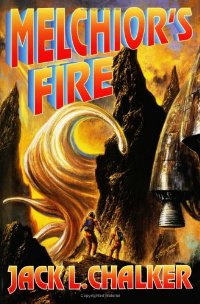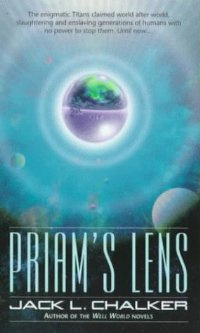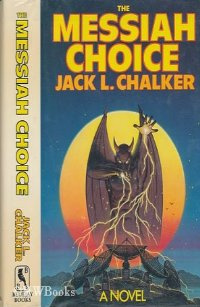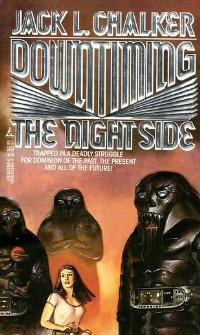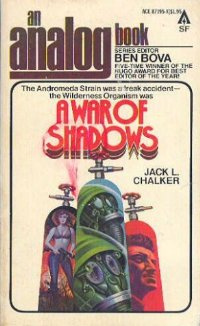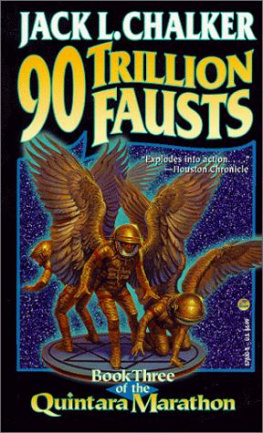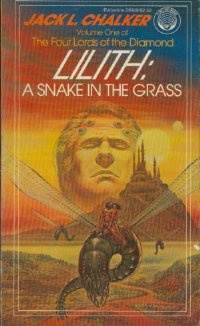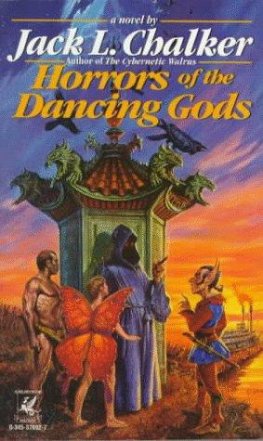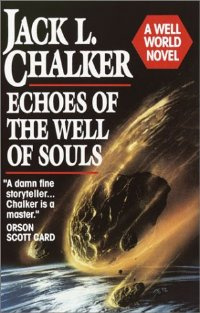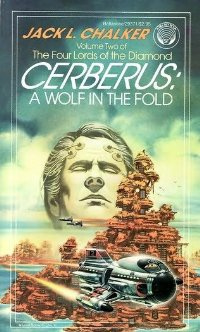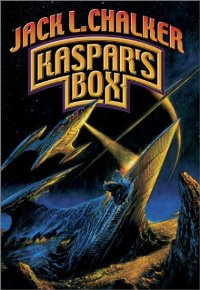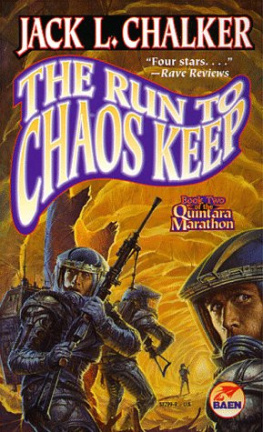Annotation
For centuries, interstellar prospectors had searched for the fabled worlds of the Three Kings, the lost El Dorado of the galaxy. But none had succeeded. Only the mad cyborg Prophet, Ishmael Hand, had ever seen the mysterious system, and he had refused to reveal its location before vanishing forever into history. Then, with the help of his flock, a starfaring evangelistDoctor Karl Woodward, preacher and leader of the starship The Mountainfound it, only to disappear in turn.
Now a new group of explorers must follow the trail that Woodward blazed. A spacegoing salvage team, desperately in debt after a violent alien menace ruins a lucrative assignment and decimates the group, is hired to follow the clues Woodward left behind. But the teams shady creditors wont want to wait...and they wont much care how they get their investments back.
Fearing pursuit by their former backers, the group heads off for the ultimate salvage operation. By hook or by crook, they will find the Three Kingsif the galactic underworlds repo men dont get them first!
Melchiors Fire
by Jack L. Chalker
Prologue:
THE LEGEND OF THE THREE KINGS
Rationalists predicted that religion would be the first thing to fall when humanity finally went to the stars and found no gods, no heaven or hell, that could not be explained by physics and the other sciences. Scientists never had been all that good at predicting or understanding human culture and sociology; they never even noticed that, when they finally went out there, every deity and supernatural belief system known at the time went right with them.
Humanity was late to the stars, considering how young in its life it had begun the quest, but, like all things it had done, once it decided to go and had the means, it went like wildfire.
The discovery of the wormgate system and the way it could stabilize and link wormholes, which folded space and took you many times faster than light by the simple method of stepping around it, made space travel efficient and affordable.
First out were the unmanned, super-hardened ships that could withstand the forces within a naturally occurring wormhole and exploit it, go through, and establish a temporary stabilizing gate on the other side. Then came the follow-ups, mostly robotics with some human supervision, who would convert that makeshift gate into a permanent and optimized one. Then a small maintenance station both for the gate and for ships that might come after was built and stocked, so that parts and labor were available as needed.
Natural wormholes created weaknesses within several parsecs, allowing other holes to form. Most were quite small and many were highly unstable, but the little probes punched through and were successful, at least most of the time.
Next came the government types, of course, in quasi-military-equipped highly reinforced ships, looking for alien lifeforms and new worlds to exploit.
And they found them! Not exactly alien civilizations, but certainly alien lifeforms in incredible abundance in a universe that seemed filled with potentially human-habitable planets. Much of the alien life was basic and primitive, the equivalent of Earths insects and animal and plant life, strange as it might be to the humans who went out there. Still, while nothing was a precise match to Earth forms, and much was surprising and even revolutionary to science, nothing really broke the rules.
Nothing also seemed to have evolved intelligence, let alone civilization, beyond the most rudimentary; evolution was borne out, but the requirement for a fast-thinking brain seemed to be a low priority in natures schemes. Humanitys fickle interest in the exploration program waned, as it always tended to do in anything that went along without real surprises, and the scientists and corporations who depended upon it sought new methods of funding. Ultimately, they came up with the idea of selling off some of the best planets to interest groups back on Earth and on the few planets that had been developed to bleed off excess Earth population. It seemed an outrageous and unworkable idea. How many groups would even want their own planet, anyway? After all, even if they were livable, the only reason to sell the planets at all would be because science and government had decided that the worlds had nothing profitable to offer. And who could afford it? Certainly all of the worlds in question could be used in a self-supporting mode, assuming settlers could import or develop Earth plants and animals that could thrive there and use the worlds mineral resources for building. But all such a program would offer would be a return to a more primitive life with little to bargain with.
The answer was, just about every group and leader with a dream or a vision or a political theory wanted a world. Every established religious group, and every dissident religious group, and every cult open and secret that had survived history or had emerged from it wanted their own world. And they all seemed to have amazing abilities to raise sufficient funds to get one, too.
Soon there were hundreds of settled worlds, spread all over the near galaxy, connected by a network of self-powered and self-maintained wormgates that, mapped, looked like some drunken spiders webbing. But the one thing they werent, not really, was independent.
The Earth System Combine wanted a single level of control, a single military force, and control of the economy of the entire expanding system, if only to pay for its expenses and expansion. But over such a vast distance and with so many quasi-independent colonies, direct political and military control would be expensive and impractical. Instead, the economic system was divided so that none of the worlds established out there were in more than the most basic sense self-sufficient. Oh, most could certainly maintain a subsistence living, some much better than that, but for the latest technology, the cutting edge of what was possible, they were made cleverly interdependent, with no single world having more than a tiny part of the whole. Any worlds that matured and chafed at interstellar rules and regulations, or balked at their share of the user and facilitation fees paid to the Combine, were welcome to drop out. It was then that they discovered how dependent they really were, and what it was like to be on your own in a cleverly constructed system that even controlled access to its own parts. If you werent a member, the costs and fees were huge, and prohibitive to a degree.
Some tried it anyway, but no terraforming was that far along or that absolute, and none of the worlds were true Earthly paradises. The ones who stayed out and cut all ties were often revisited out of curiosity decades later by Combine ships only to be found with no human survivors.
The skills that had originally made humans dominate their home planet were now dead; nobody knew them anymore. The machines did it, but who programmed and maintained the machines? And what happened if no more came?
And each rebel thus became an example, all without firing a shot. The Combine grew fat, and lazy, and rich, and complacent.
Nobody knew what had caused it, nor who. The best guess was one more grab for power by yet another faction back home who ran into a ruling clique who decided that if they couldnt have the power and control nobody else would. A miscalculation, a failure of intelligence or perhaps a misjudgment of will. Perhaps it was an unforeseen enemy in their midst or from somewhere else in the vast starfields. It didnt matter.
Whatever it was, what happened was that, one day, with no notice and no particular alarms, almost a third of the wormgate system, the part that led back toward the Earth System and the headquarters of the Combine, simply stopped. Nothing more emerged from the gates, even though ordinarily traffic was brisk; and, perhaps as ominously, nothing that went into the gates after that one point ever was seen or heard from again.

